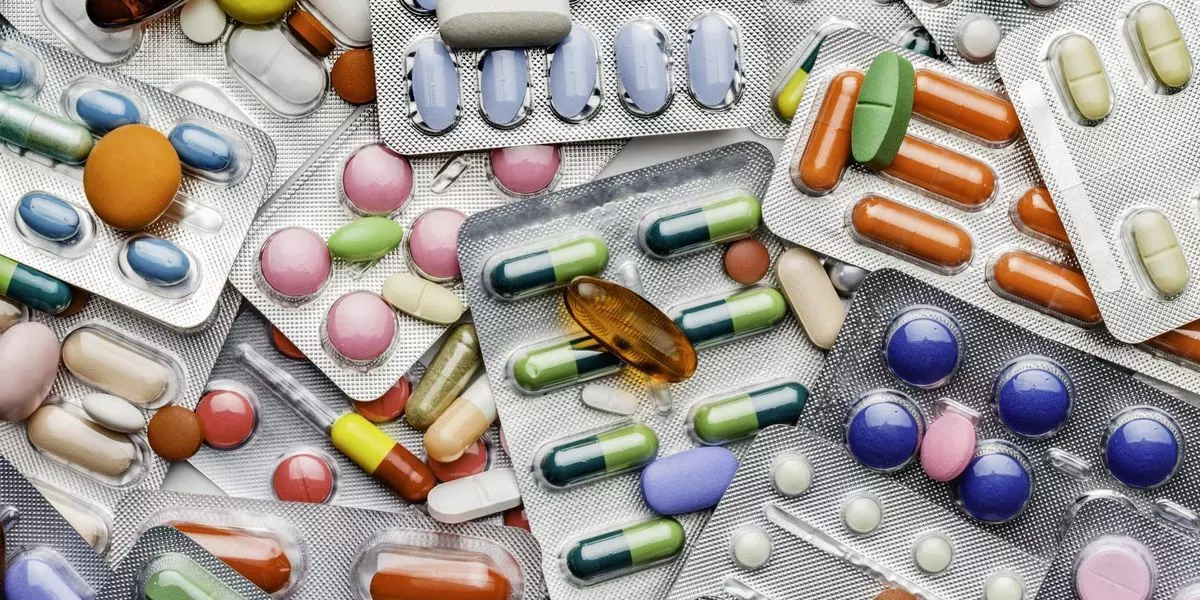Public Health Alert: Doctors warn against rise in ‘falsified medicines’ and self-medication
The falsified medicines may contain dangerous ingredients, zero ingredients or too much or too little ingredients, making them a threat to public health.
By Neelambaran A
Representational Image.
Hyderabad: ‘Falsified Medicines’ are medical products that deliberately/fraudulently misrepresent their identity/composition or source, the World Health Organisation said. The developing countries. The organisation has also found that 10.5 per cent of medicines are falsified or substandard, with the burden falling on low and middle-income countries.
The Associated Chamber of Commerce and Industry (ASSOCHAM) in 2022, revealed that around 22 per cent of drugs in India are fake, counterfeit or substandard in a paper named ‘Fake and Counterfeit Drugs In India – Booming Biz’.
The recent revelation of the WHO on falsified medicines used for diabetes and weight loss treatment has called for an increased vigil on prevailing in the market. With a weak regulatory mechanism, the economically backward are prone to the negative effects of such medications in India.
The menace of falsified medicines
Fake, counterfeit or substandard medicines are prevalent in India and several other developing and poor countries. The prevalence of such drugs is considered a public health concern.
“The antimalarials, genitourinary and sex hormones are particularly affected by consumption of falsified medicines. Such medicines are prevalent in expensive cardiovascular and oncology products to low-cost pain suppressants,” Dr Kiran Madhal, secretary general of Telangana Teaching Government Doctors Association.
In India, the value of the fake drugs is estimated at $4.25 billion (Rs 352 crores) of the total $14–17 billion (Rs 14 trillion) actual domestic value by the ASSOCHAM in 2020.
The contaminated syrups and medicines have resulted in deaths and other medical ailments.
List of falsified medicines
The Central Drugs Standard Control Organisation (CDSCO) has released a list of drugs that are ‘Not Standard Quality’ for April 2024. The list includes Instgra Tablets, Telmisartan 40 mg, Domperidone and Naproxen Sodium Tablets and Rifaximin Tablets.
The raids and tests held in December 2023 and January 2024 by the Drugs Control Administration (DCA) of the Government of Telangana found that medicines were falsely labelled under famous companies including Sun Pharma, Glenmark pharma, Aristo pharmaceutical and Torrent pharma.
The DCA also found MPOD-200 Tablets (Cefpodoxime Proxetil and Lactic Acid Bacillus Tablets) and MEXCLAV 625 Tablets (Amoxicillin and Potassium Clavulanate, Lactic Acid Bacillus Tablets) and ‘Cefoxim-CV Tablets (Cefpodoxime Proxetil & Potassium Clavulanate, Lactic Acid Bacillus Tablets) which are antibiotics manufactured by a company which didn't even exist.
Earlier in January 2023, the CDSCO had listed 67 products with specific batch numbers for various reasons including dissolution, assay and variation in weight per ml, pH and sterility among others.
What is present in falsified medicines?
The falsified medicines commonly mimic the original ones and may contain wrong ingredients, no active ingredients, too much or too few ingredients or highly dangerous ingredients.
“As per lab tests done, the medicines were found to have potato starch, cornstarch and even chalk as ingredients,” Dr Kiran said.
The task of detecting falsified medicines is difficult since they appear like original products and are sold online and through shops.
“The culture of self-diagnosis and self-prescription has led to the emergence of thousands of unregulated websites providing unsupervised access to substandard and falsified (SF) medicines,” Dr Kiran said.
WHO’s warning on Semaglutide products
The WHO, in a recent statement, has warned about falsified semaglutide products for the brand Ozempic. The WHO addressed three batches of Ozempic brand semaglutide prescribed for type 2 diabetes and weight loss in Brazil, the United Kingdom and the USA.
“Ozempic is available in India under a different name but is very costly. It has been found effective for diabetic treatment. It has been approved by the US for weight loss as well,” Dr Vasanth Kumar, renowned general physician from Hyderabad.
The WHO does not recommend semaglutide for diabetic treatment considering the high cost which makes it unsuitable for the public health approach.
Given the adverse effects of substandard, false and counterfeit medicines, the experts warn consumers to exercise caution, avoid self-medication and refrain from purchasing medicines from unregulated websites.